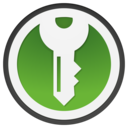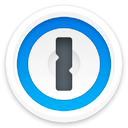Best Password Managers Curated by Github Users
Open Source and Always a Work in Progress (WIP)
This technical assessment provides an evidence-based analysis of password management services. In contrast to commercial review sites, this framework prioritizes empirical analysis via independent security audits, public source code availability, and cryptographic verifiability.
Our evaluation considers:
1. Code Transparency: Public availability of source code
2. Independent Verification: Third party security audits
3. Architectural Verifiability: Fact or trust
4. Metadata Protection: Technical implementation
5. Encryption Design: Client-side cryptography
| Rank | Service | Open Source | Independent Audit | Client-Side E2EE | Self-Host | Local-Only | Metadata Protected | Argon2 Support |
|---|---|---|---|---|---|---|---|---|
| 1 |  KeePassXC KeePassXC |
Yes | Yes (code reviews) | Yes | Yes (file-based) | Yes | Yes (local file) | Yes |
| 2 |  KeePass KeePass |
Yes | Yes (design review) | Yes | Yes | Yes | Yes | Yes |
| 3 |  Bitwarden Bitwarden |
Yes | Yes | Yes | Yes | No (cloud-focused) | No (partial) | Yes |
| 4 |  1Password 1Password |
No (closed client) | Yes | Yes | No | No | Yes | Yes |
| 5 |  Proton Pass Proton Pass |
Yes (clients) | Yes | Yes | No | No | Yes | Yes |
| 6 |  Pass Pass |
Yes | No | Yes | Yes | Yes | Yes | Yes |
| 7 |  KeePassium KeePassium |
Yes | No | Yes | Yes | Yes | Yes | Yes |
| 8 |  Enpass Enpass |
No | No (partial) | Yes | No | Yes | No (partial) | No (PBKDF2-based) |
| 9 |  NordPass NordPass |
No | Yes | Yes | No | No | No (details not fully documented) | Yes |
| 10 |  Dashlane Dashlane |
No | Yes | Yes | No | No | No (details not fully documented) | Yes |
| 11 |  LastPass LastPass |
No | No (partial) | No (partial) | No | No | No | Yes |
The following password managers represent maximum privacy by design. They cannot leak metadata by design.
These password managers encrypt client-side, verified through audits and open-source code.
 1. KeePassXC
1. KeePassXC 2. KeePass (KDBX)
2. KeePass (KDBX) 3. Bitwarden
3. Bitwarden 4. 1Password
4. 1Password 5. Proton Pass
5. Proton Pass 6. Pass (Unix Password Store)
6. Pass (Unix Password Store) 7. KeePassium (iOS KeePass Client)
7. KeePassium (iOS KeePass Client) 8. Enpass
8. Enpass 9. NordPass
9. NordPass 10. Dashlane
10. Dashlane 11. LastPass
11. LastPassKeePassXC and KeePass represent the gold standard for password management through architectural privacy. Their file-based, local-first design makes metadata leakage impossible without user action, and their fully open-source codebases enable complete verification.
Bitwarden stands out as the best cloud-based option, combining open-source transparency with independent audits and self-hosting capability. For users requiring cloud sync convenience, Bitwarden provides the best balance of usability and verifiable security.
1Password offers strong cryptography through its Secret Key design but remains limited by its proprietary codebase. Users must trust rather than verify its implementation.
LastPass should be avoided entirely due to its demonstrated security failures and poor incident response history. The 2022-2024 breach sequence exposed fundamental architectural weaknesses and inadequate security practices.
The ideal password management strategy prioritizes local-first architecture (KeePassXC/KeePass) when possible, or open-source cloud solutions (Bitwarden) when sync convenience is essential. Proprietary cloud solutions require trusting unverifiable claims about security implementation.